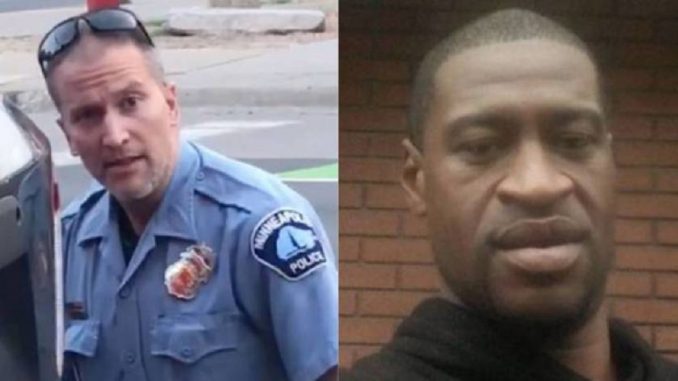
By Luis Meiners
After a trial that lasted three weeks and just over ten hours of deliberation the jury declared that Derek Chauvin, the officer who murdered George Floyd, is guilty in the charges of second degree murder, third degree murder and second degree manslaughter, which carry penalties of up to 40, 25 and 10 years respectively. The sentence hearing will be in eight weeks. This verdict is a triumph of the historic rebellion that mobilized millions in 2020 and was once again felt in the streets in recent weeks.
The murder of George Floyd in Minneapolis on May 25 of last year triggered what may have been the largest rebellion in US history, and it had repercussions around the world. This process was activated again in the streets in recent weeks due to new murders at the hands of the police. On April 11, Daunte Wright, a 20-year-old Black man, was pulled over as he was driving through the Brooklyn Center suburb outside of Minneapolis and was shot by police officer Kim Potter. She alleged that she confused her taser gun and her firearm. In Chicago, 13-year-old Adam Toledo was also killed by a shot fired by officer Eric Stillman.
It is precisely this context of mobilization that explains what happened in court. It is not that the system can deliver justice, it is won in the streets. In this path the verdict of the jury is a triumph, but more is needed to obtain justice. The force of the 2020 rebellion was in its massiveness, and also in the fact that it identified the systemic nature of racist violence and pointed out the responsibility of the police as a repressive institution.
As the murders of Adam Toledo, Daunte Wright and many more show, racist and police violence is not a matter of a few individuals, it is the whole institution and the system. The verdict won must become a starting point to continue advancing in the struggle to defund and dismantle the police. Racist and police violence is a fundamental link in the functioning of US capitalism, the fight against its institutional expressions is part of the fight to end this system.








